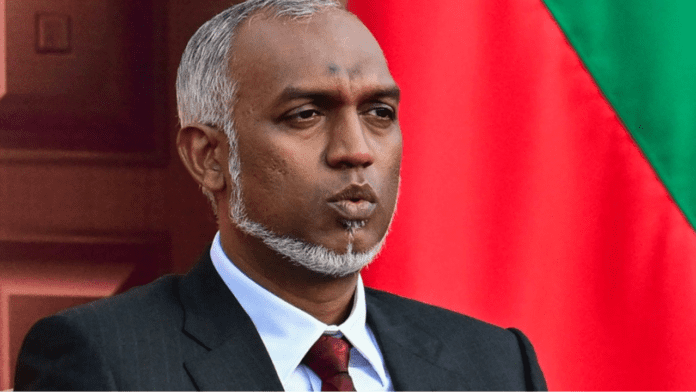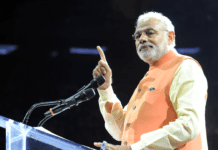The Maldivian Democratic Party (MDP), a pro-India opposition party, secured a decisive victory in the mayoral election in the capital, Male. In a domestic setback for President Mohammed Muijzzu, the MDP emerged victorious in the mayoral election held on January 13.
Table of Contents
Adam Azim:
The MDP candidate, Adam Azim, has been elected as the new mayor of Male, replacing Muijzzu, who resigned from office last year to participate in the presidential elections. Azim’s victory has been described by the Maldivian media as a “landslide” and a “significant win.”
Adam Azim, a former CEO of the Maldives Transport and Contracting Company (MTCC) during the previous government, has a diverse career background.
Adam Azim Background:
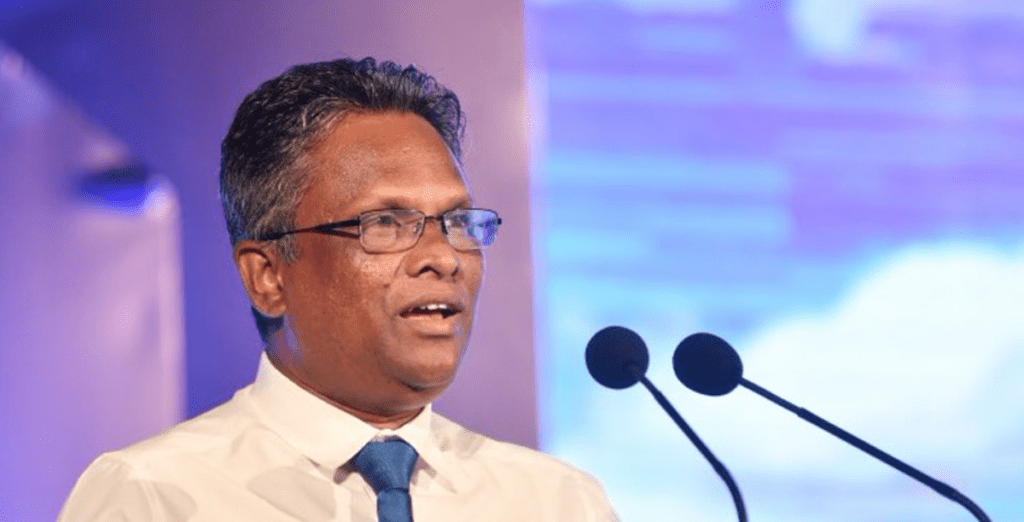
Before taking on the role of CEO at MTCC, he worked as an internal auditor for cooperatives and livestock for a while.
Before his role at MTCC, Azim served as the Managing Director of the Maldives Water and Sewerage Company (MWSC) and the Managing Director of the State Trading Organization (STO).
In a surprising turn of events, Azim secured a substantial lead with 5,303 votes after the counting of 41 boxes. According to reports from Maldives’ online news portal, Muijzzu’s rival, Aishath Shakoor of the People’s National Congress (PNC), received 3,301 votes.
The victory in the mayoral election is seen as a revival of the MDP’s political fortunes, which still holds a majority in the parliament.
Former Foreign Minister of the Maldives, Abdullah Shahid, congratulated Azim and the MDP for their win, highlighting that the capital had decisively rejected President Muijzzu and his policies within 58 days of his term.
Kudos @adamazim and to @MDPSecretariat on winning the Male’ Mayoral by-election!
— Abdulla Shahid (@abdulla_shahid) January 13, 2024
The capital city has said a categorical NO to President Muizzu and his policies – within just 58 days in office!#AdamAzim4Mayor #Vote4AdamAzim #VaaneKuraane #FehiThanavasMale pic.twitter.com/YRfr80soPl
The political tension between India and the Maldives escalated during the mayoral election, following derogatory comments made by three deputy ministers of the Muijzzu government against Indian Prime Minister Narendra Modi. This led to a political conflict between the two nations.
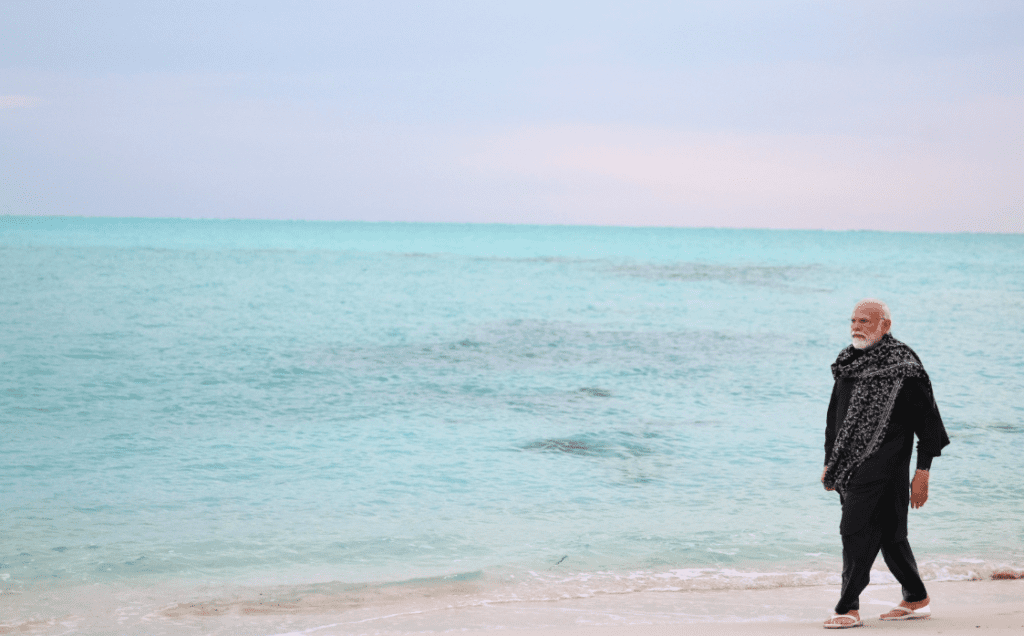
“Despite being small, the Maldives doesn’t give anyone the license to threaten us,”
During a high-profile visit to China, Muijzzu demanded bringing Male closer to Beijing. Muijzzu returned to Male on January 13 after a five-day political trip to China. Following social media postings, he suspended three ministers, causing concern in India and leading to calls for a boycott by Indian tourists, who were the largest group, followed by Russians and then Chinese.
Muijzzu clarified that despite being a small nation, the Maldives doesn’t give anyone a “license” to “threaten” them from behind. In response to questions about comments resembling those made by India’s politicians, Muijzzu strongly reacted, stating that they are not subservient to anyone’s whims and that the Maldives is a sovereign, independent state.
Following Muijzzu’s “India Out” campaign, there has been a recent debate that suggests a shift in alignments towards China in the competition for control in the Indian Ocean region. Despite being a small nation, President Muijzzu stated after his China trip, “Maldives may be small, but it doesn’t give anyone a license to threaten us.”
China-supporting leader Mujju, without naming any country, stated, “We may be small, but that doesn’t give them a license to threaten us.”
“While our collection of petite islands dots the expanse of this ocean, we command an extensive exclusive economic zone spanning 900,000 square kilometers.” Maldives is one of the countries with the largest share in this ocean,” he remarked to the media upon arrival from China after concluding his state visit, the first since taking office last November.
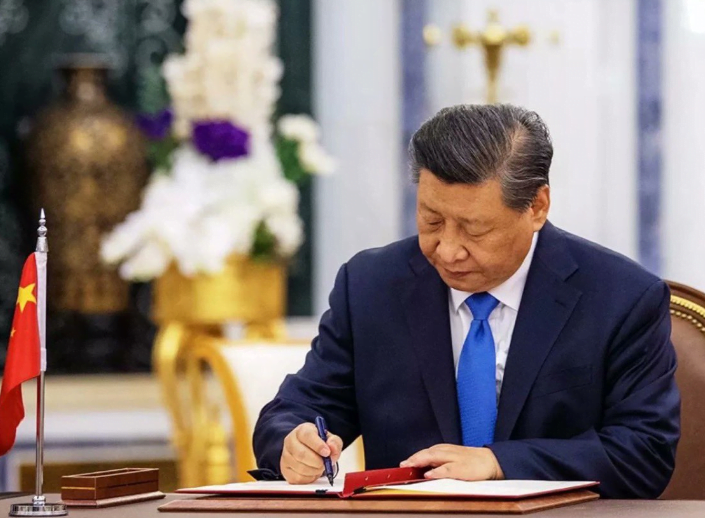
Explicitly mocking India, he said, “This ocean doesn’t belong to any specific country. The Indian Ocean belongs to all the countries surrounding it.”
Refuting any external influence, a Maldives online portal reported his words, “We are not in anyone’s back pocket.
We are a sovereign and independent state.”
Mujju and President Xi Jinping conducted talks during his visit to China, which resulted in the signing of 20 agreements.
In a joint statement issued at the end of Mujju’s talks with top Chinese leaders, it was stated, “Both sides agree to support each other firmly in the defense of their respective core interests.”
The statement emphasized, “China supports Maldives in maintaining its national sovereignty, freedom, and national dignity. It respects and supports the exploration of a development path suitable for Maldives’ national conditions, and firmly opposes external interference in Maldives’ internal affairs,” without mentioning any specific country.
In a media briefing in Male, Mujju revealed that China had provided a 130 million aid package to his country.
Mujju announced that a significant portion of the 130 million aid would be allocated to road infrastructure in Male, where mayoral elections are scheduled for Saturday. He had served as the former mayor of the capital city before being elected for the presidency last November.
Local news portal Sun Online stated, “This is an approximately 130 million grant. It will be spent on developmental projects. The most significant expenditure will be on the development of Male’s roads.”
Additionally, China’s ambassador to the Maldives, Wang Lixin, mentioned that if Maldives aligns with President Xi, more support for development projects would be extended from Beijing.
During Mujju’s visit to China, along with signing a million deal for the construction of 30,000 social housing units in Rasfannu, they also signed an agreement to develop an integrated tourism zone in Hulhumale.
According to the article, China would also contribute to the construction of a 100-bed tertiary hospital in Vilimalé. Although the IGMH is regarded as the nation’s largest hospital, India built it initially in
1992 as part of foundational infrastructure projects much before China established its presence in the island nation. IGMH was revamped with enhanced diagnostic and treatment facilities with Indian assistance in 2018.
The trip faced political controversies with India due to derogatory comments by Mujju’s ministers against Prime Minister Modi and the release of a report by the Maldives Election Observation Mission, which claimed that the Progressive Party of Maldives (PPM) and People’s National Congress (PNC), part of the ruling coalition, propagated anti-India sentiments in the 2023 presidential elections, leading to Mujju’s victory.
A European Union report in November highlighted Mujju’s presidential election and the influence of former China-backed President Abdullah Yameen, currently serving a jail sentence for corruption.During Mujju’s visit to China, a joint declaration was released indicating the intention to advance bilateral relations to a comprehensive political cooperative partnership. “During this trip, both leaders announced the intention to elevate our bilateral relations to a broader political cooperative partnership,” Sun Online said, citing his interviews. This will offer a solid political assurance for the two nations’ continued collaboration.”
